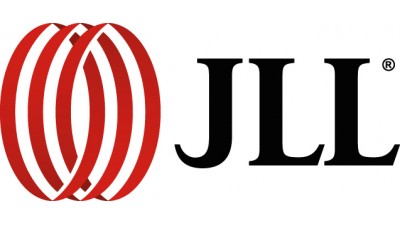5 Trends Shaping Northwest Denver Office And Industrial Markets

While Denver’s population boom, workforce expansion and development flurry have grabbed headlines, submarkets northwest of the city have also seen significant market shifts.
Areas like Boulder, Longmont and the U.S. Highway 36 corridor have seen industrial availability decline as office demand drives warehouse conversions.
JLL Executive Vice Presidents Ken Gooden and Eric Brynestad specialize in office tenant representation in the Denver office market, and have seen mixed-use development, changing workforce trends and new city initiatives reshape office and industrial activity.
1. Successful markets are near walkable amenities
Office tenants want walkable access to dining, shopping, housing and recreational activities. Northwest Denver submarkets that offer these amenities have seen strong leasing and development activity. In Superior, the Town Center development, rebranded as Downtown Superior, will create a mixed-use space with up to 1,400 dwelling units, 445K SF of retail, 373K SF of office and 500 hotel rooms.
S’park, short for Sutherland Park, will bring a similar modern village design to the Central Boulder submarket. The project will create transit-oriented retail, office space and affordable multifamily rentals.
Submarkets like Downtown Boulder and East Boulder where there are fewer amenities have seen a decline.
“If you are able to walk outside to a hotel and restaurants, your market is probably very healthy,” Gooden said.
2. Limited parking has pushed office tenants out of the Boulder market
The push from the city to encourage developers to build projects promoting bike-sharing and mass transit has backfired for tenants seeking more parking space, Brynestad said. Large tech companies are not considering buildings in Northwest submarkets where parking capacity cannot match their needs.
Office tenants do not want to establish programs to support the use of these alternative transportation options.
“We have clients who won’t even look at those developments because of the lack of parking," Gooden said. "It’s just ruled out, which is a tough deal.”

3. Companies are following the workforce to Denver
Denver is one of the most desirable cities for young professionals. The influx of talent has some Boulder companies moving their offices to Downtown Denver to take advantage of the brain gain. High office rental rates in Boulder and the high cost of owning a home have made the decision easier for companies that are finding more affordable space in popular Denver neighborhoods like LoDo.
“Don’t get the impression that Boulder is not doing well,” Brynestad said. “The vacancy rate is still very low, but as the markets continue to roll along, there are more companies that need that growth space and some of those companies are bypassing Highway 36 to Denver for that talent pool.”
4. Boulder office growth squeezes industrial users out of the market
Despite some companies moving to Denver, the office market continues to grow in Boulder. The demand for office space has companies converting former warehouses and flex-industrial space into offices. East Boulder industrial tenants have migrated to available space in Longmont, Louisville and Lafayette.

5. An influx of corporate HQs into the Boulder-Denver corridor
While the recession limited the growth of corporate headquarters along U.S. Highway 36 over the past six years, activity has since picked up in the market. Swisslog Healthcare, Viega and Partners Group have all signed leases to move into the market within the last six to nine months. Swisslog’s move to its 30K SF office was the final piece in completing its relocation from Denver’s Montbello industrial neighborhood to the Boulder-Denver corridor.
The companies respectively handle hospital manufacturing, HVAC solutions and private markets investment management. The migration speaks to the maturation of the market, as companies diversify beyond the tech industry.
“I’ve been working this market for 22 years, and what I’ve seen over the last few years is a definite maturation of the market,” Gooden said. “Twenty-two years ago, it was largely tech and that was it. Now it feels much more diverse and very much a mature, stable market.”
Corporate HQs continue to crop up along Highway 36, but developers have grown fearful of speculative development, Brynestad and Gooden said. While the market remains healthy, both point to the end of the cycle as a potential cause for concern.
To learn more about this Bisnow content partner, click here.

